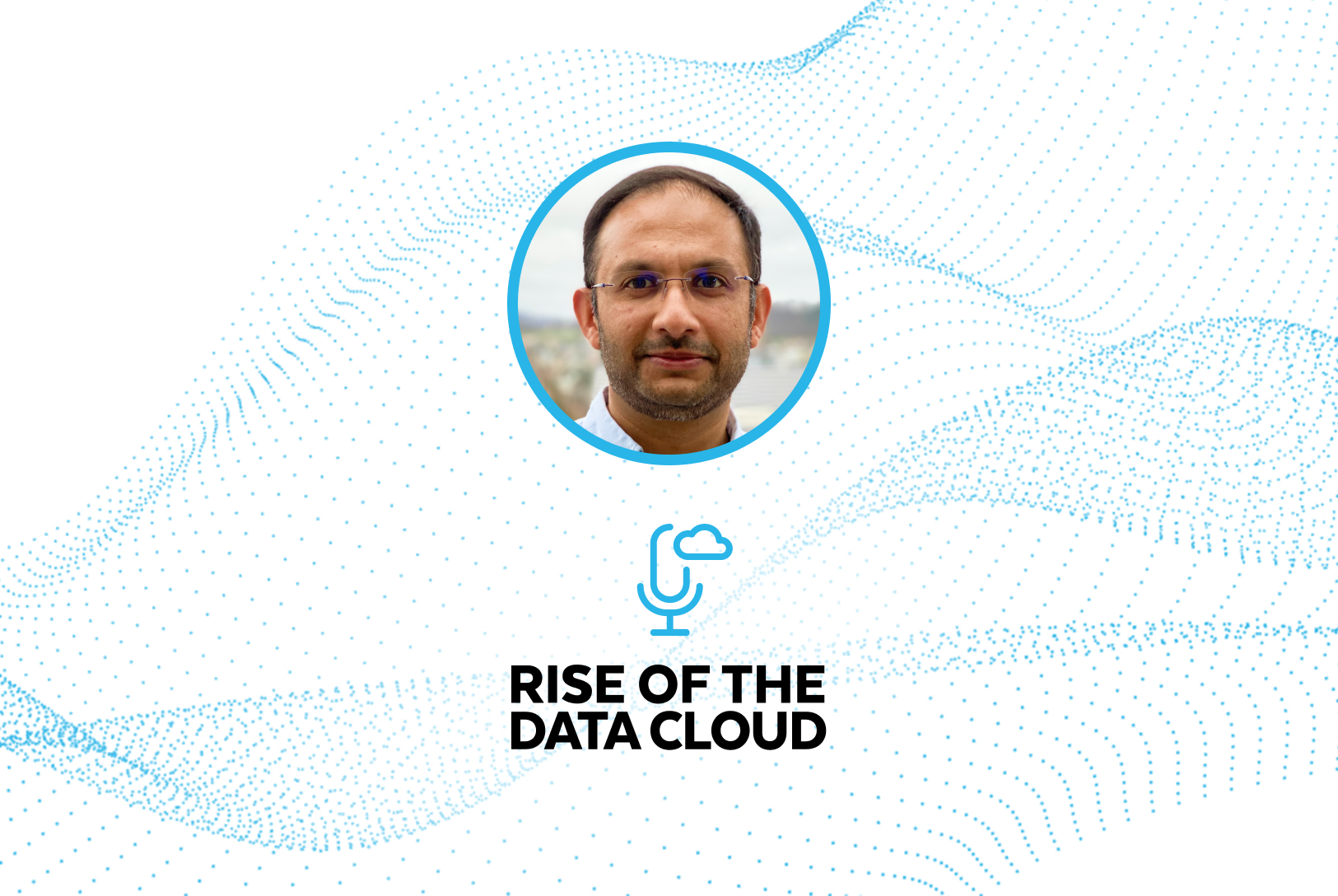Global healthcare company Roche is a great believer in data sharing and decentralization whenever those approaches empower its employees. Omar Khawaja, Global Head of Business Intelligence at Roche Diagnostics, joined us on the latest episode of Rise of the Data Cloud to discuss those topics and share his view on emerging data and analytics trends.
Founded in 1896 in Switzerland, Roche has two large divisions, pharmaceuticals and diagnostics, and is also home to U.S. biotech company Genentech. Employing over 100,000 staff, Roche describes its mission as “doing now what patients need next.” Increasingly, this means applying advanced analytics to real-time data to deliver more-targeted medicines and individualized treatments.
Roche developed a number of diagnostic solutions to help in the fight against COVID-19. Data is playing a key role in enabling Roche to evaluate the impact of the pandemic on its supply chain, on the increased demand for its products, and on its workforce. To gain a fuller picture, Roche also needs access to external data, such as the Starschema data sets, which is easily accessible via Snowflake’s Data Marketplace, Khawaja said.
Khawaja sees a huge potential upside for Roche in being able to access more third-party data sets through the Data Marketplace, which helps conserve its resources and avoid the duplication of data. “We can reuse the data on its own instead of making copies of it so that others can use it,” he said. “That’s why I love Snowflake’s segregation of storage and compute.” Khawaja is also a fan of the “tremendous speed gains” afforded by data sharing, which provides immediate access to data for timely insights.
“Roche has an amazing culture of decentralization, which leads to the empowerment of the teams on the ground who need to make things happen,” Khawaja said. While it makes a lot of sense to centralize the management of infrastructure, empowering teams responsible for end-to-end data lifecycle management is also important. These teams can then quickly meet the varied data requirements of different departments at Roche.
The goal for Roche Diagnostics is to migrate its entire on-premises data and analytics solutions to the Snowflake Data Cloud. These are the organization’s early days in the cloud journey, but its first project, to move customer experience and insights to the Data Cloud, went live in eight weeks, a previously unheard-of achievement.
Roche also has initiatives underway across manufacturing, quality and regulatory, and supply chain operations. “We aim to multiply the efforts across the different functions because we now have the opportunity to really scale,” Khawaja said.
Roche Diagnostics is using Snowflake to create a data mesh, a newer type of enterprise data architecture. The data mesh fits well with Roche’s culture of having decentralized ownership of the data and treating data as a product so it can be used and reused across the organization, Khawaja said. These are both key tenets of a data mesh, along with a self-service data and analytics platform such as Snowflake, and data governance.
“With a data product approach, the first thing you ask is: Who’s going to use my product and what are they going to do with it?” Khawaja said. This is in sharp contrast to data lakes, where the initial focus was often to “dump” data and only later on wonder what to do with it, he added.
Over the coming year, Khawaja expects to see increased interoperability across data and analytics solutions as well as more focus on unlocking the value contained in unstructured data. He looks forward to the democratization of data science so that business people, such as sales or service reps, have direct access to AI to help them make more-informed decisions.
Rise of the Data Cloud is a podcast hosted by award-winning author and journalist Steve Hamm. For each episode, Hamm speaks with a data leader to learn how they leverage the cloud to manage, share, and analyze data to drive business growth, fuel innovation, and disrupt their industries. You can listen to more episodes here.
